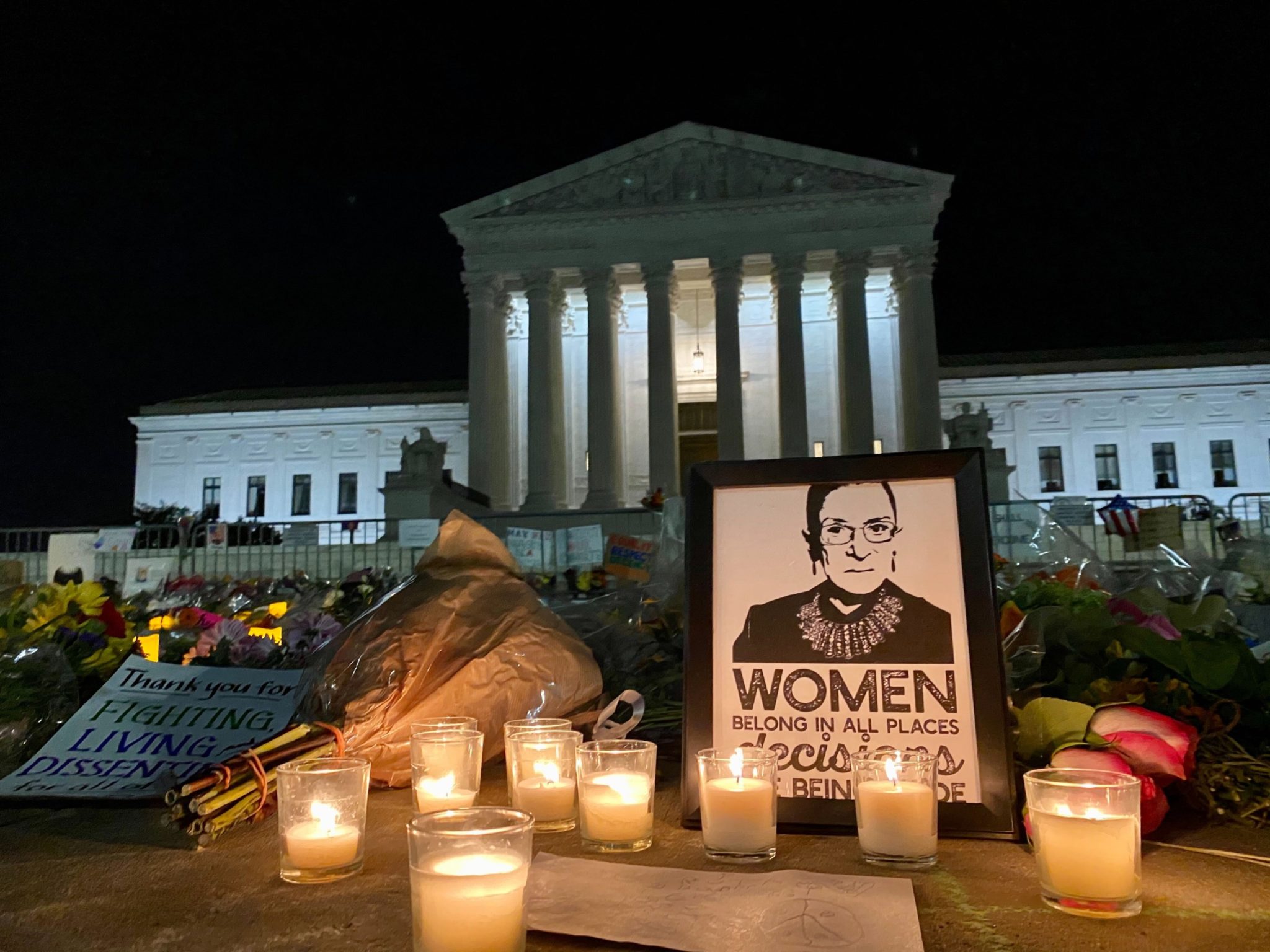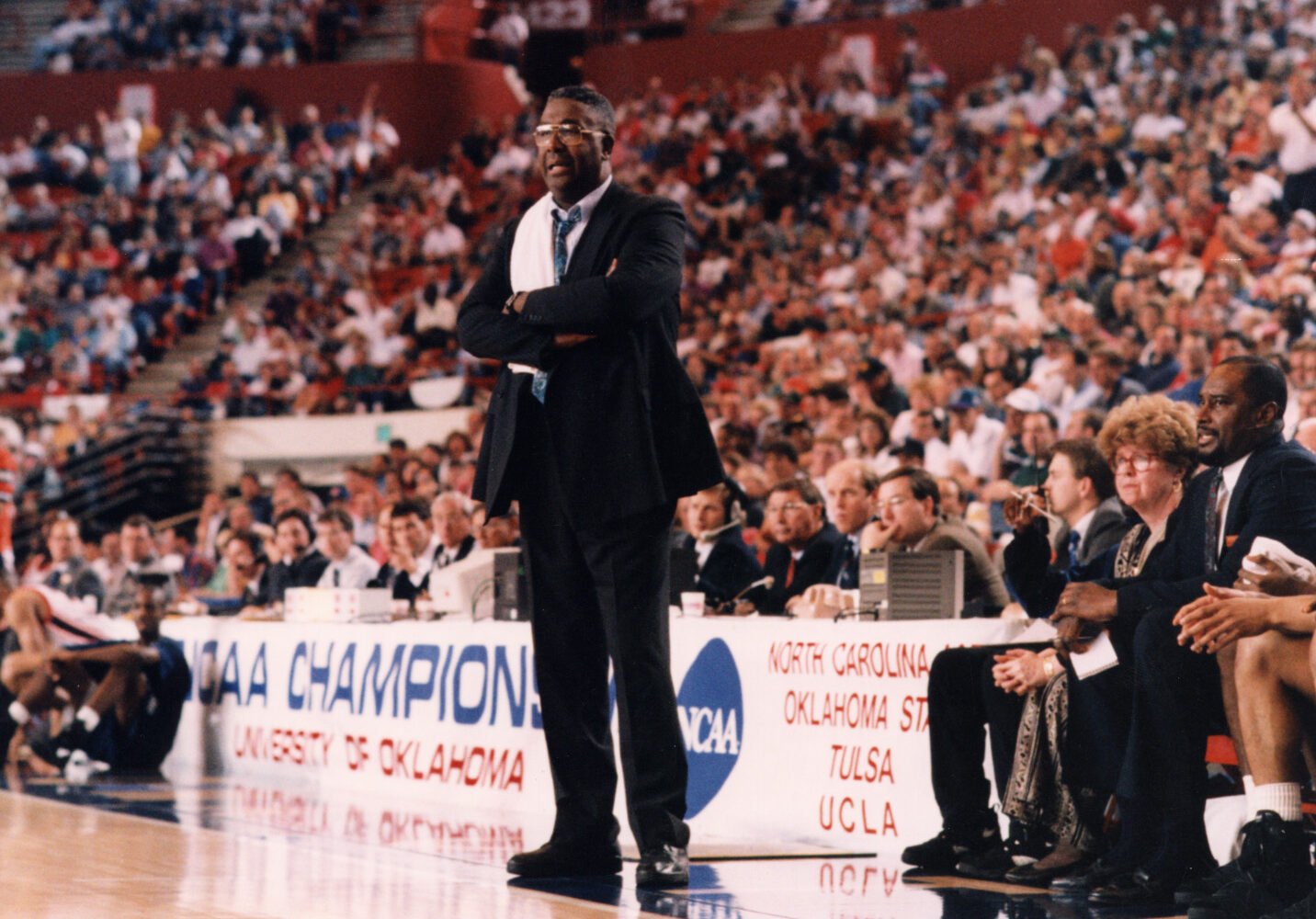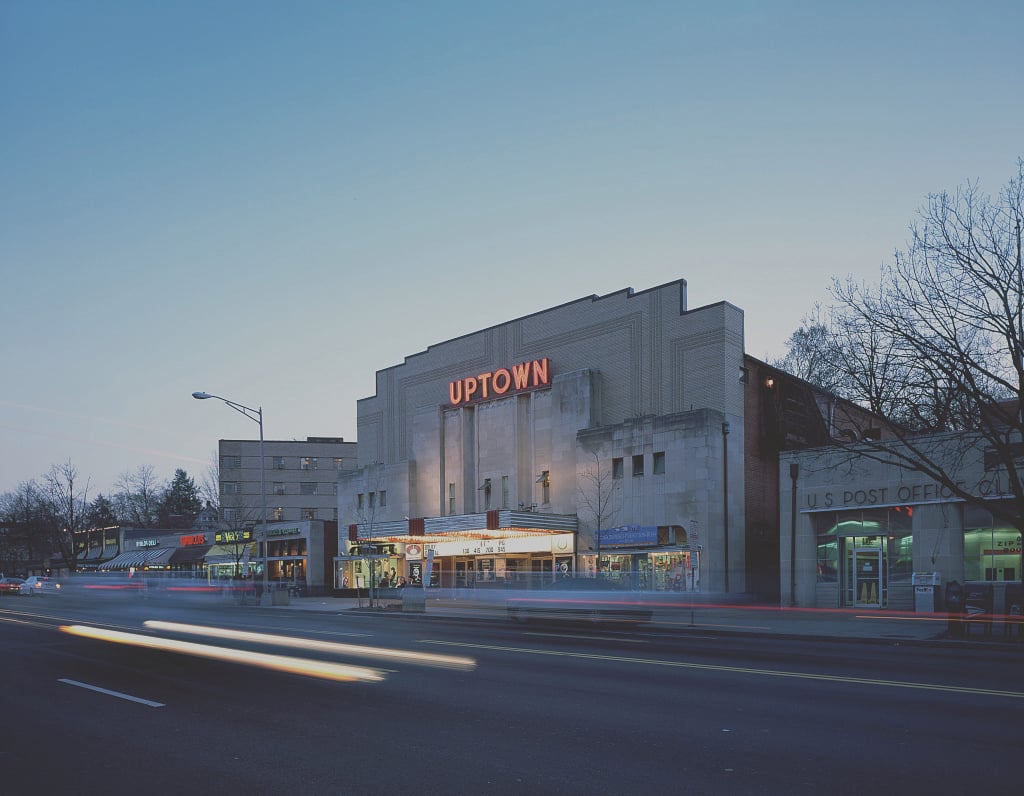In a grim year, it’s hard to keep track of the people and places we lost—much less remember the quirky reasons we loved so many of them. Here’s a sampling of farewells worth remembering.
Ambika the Elephant
born c 1948
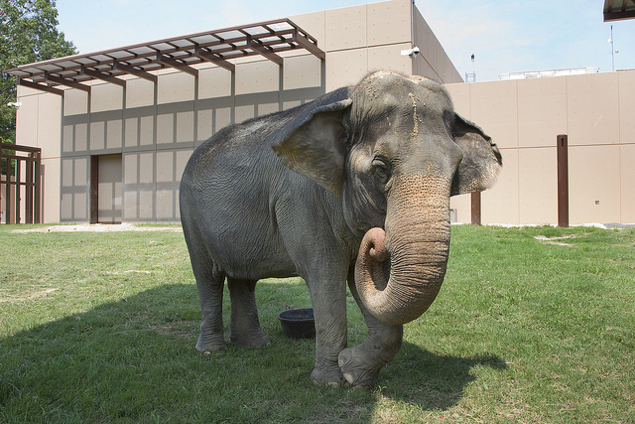
She’d lived at the National Zoo since 1961—a pachyderm pal for generations of elephant-loving Washingtonians. Ambika was fascinating to watch, whether swinging her trunk around the yard, giving herself a mud bath, or hanging with Mr. Rogers. She was estimated to be 72—quite old for an Asian elephant in captivity—and finally had to be euthanized in March.-Rob Brunner
The Uptown Theater
built 1936
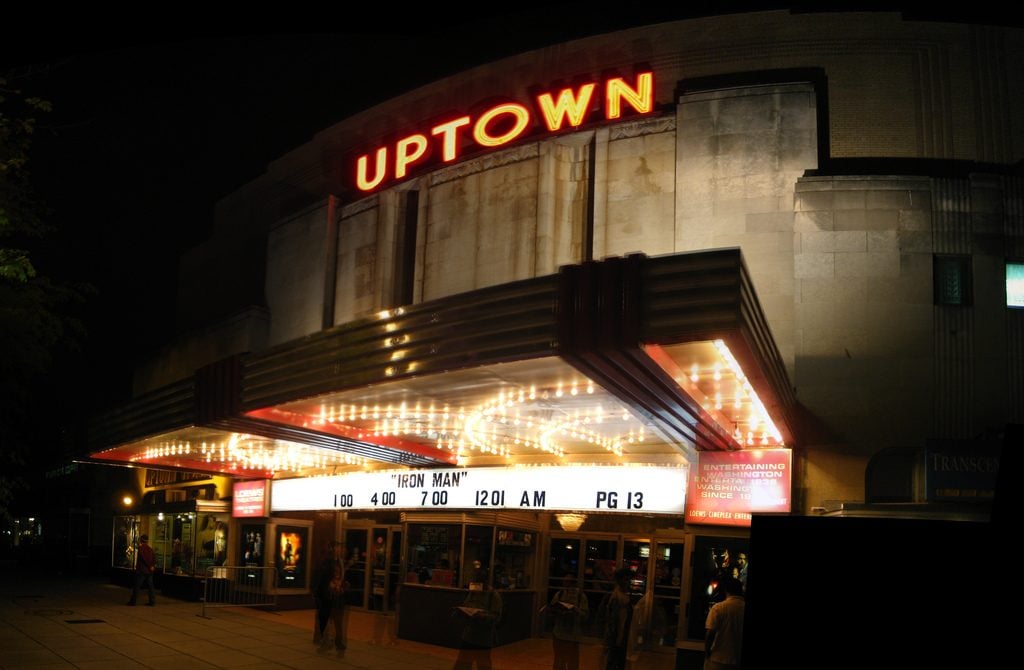
The historic Art Deco movie house on Connecticut Avenue shut down abruptly in March. Built in 1936, it was the site of movie premieres (2001: A Space Odyssey, Jurassic Park) and epic lines for world-changing blockbusters like the original Star Wars. It was also just a great neighborhood place to go see a so-so flick on a slow weekend. With an application pending for a Historic Landmark designation, the future of the building remains in limbo.-Rob Brunner
Ruth Bader Ginsburg
born 1933
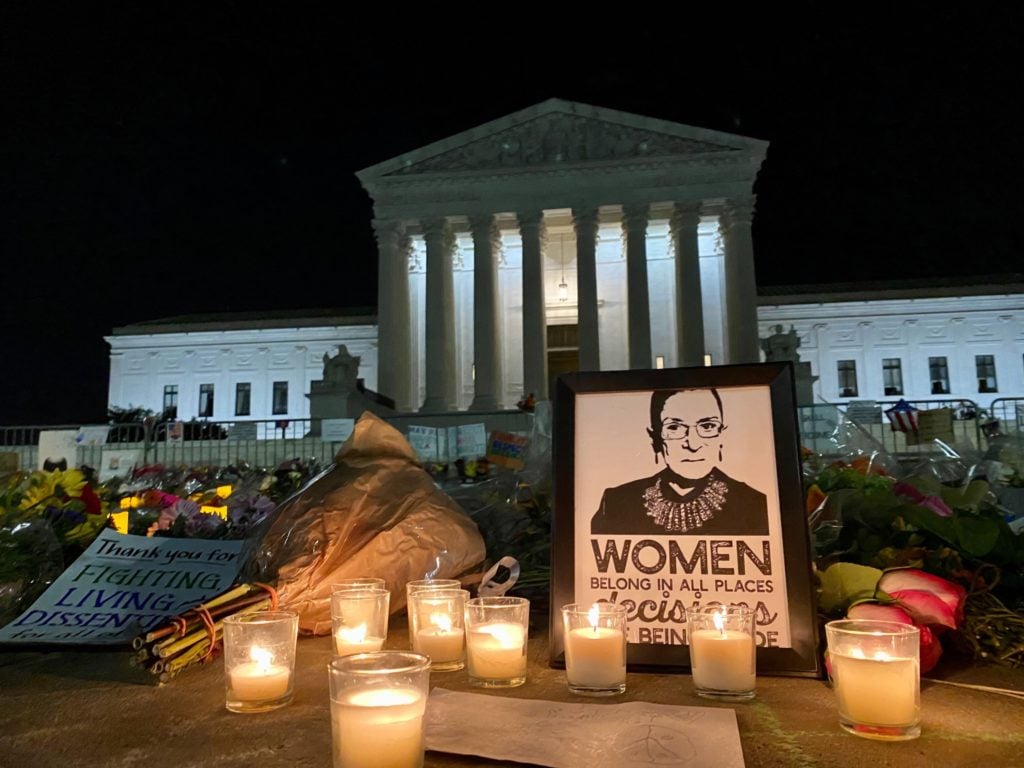
The Supreme Court Justice’s death this fall was both unsurprising—she’d been ill for years—and a shock: Because it came just ahead of the election, the liberal icon’s death enabled Donald Trump to add a third far-right justice to the court, locking in conservative gains for a generation. No wonder thousands thronged to the Courthouse to mourn her. But in local Washington, there was another reason, beyond ideological affinity and admiration for a trailblazing woman. Ginsburg was the rare federal-sector notable who was also a regular around town, frequenting the opera, the galleries, and the theaters. A native New Yorker, she spent forty years in the District. In the minds of a lot of neighbors, she was one of us.-Michael Schaffer
Mel Krupin
born 1929
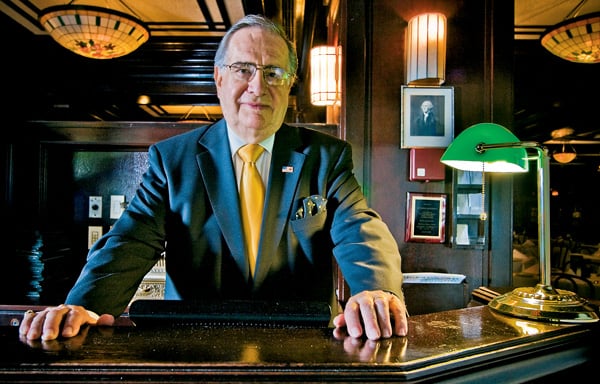
If you’re new to Washington, the name Mel Krupin might not mean much to you. But there was a time, just a few decades ago, when chefs were the no-names and maitre d’s were the celebrities. And there were few maitre d’s like the fast-talking, funny Krupin, who oversaw the seating chart at Duke Zeibert’s, the pinnacle of DC’s power dining rooms in the ‘60s and ‘70s. Krupin was powerful, but the last thing you’d call him was smarmy: you couldn’t buy him off for a twenty, but you could endear yourself to the Brooklyn native with a one liner. He died in August at age 90—the last of DC’s famous gatekeepers.-Ann Limpert
John Thompson
born 1941
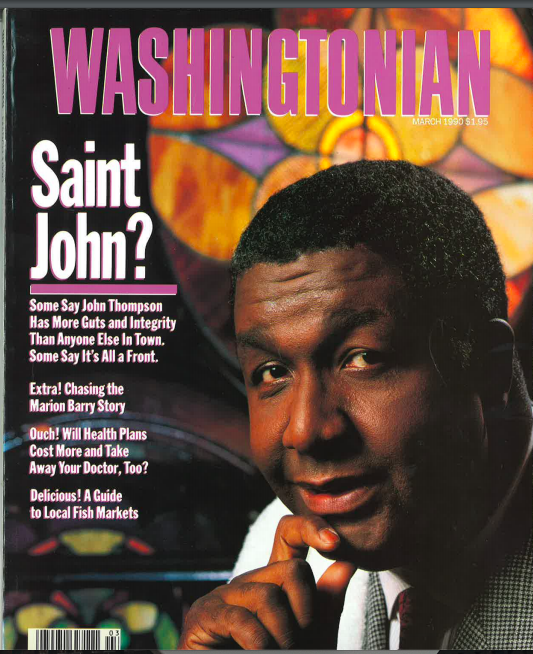
John Thompson left a thundering legacy on the NCAA, the NBA, and on Georgetown University, but there was something in particular he wanted his autobiography I Came As a Shadow to set straight: He never physically confronted DC drug kingpin Rayful Edmond III when he warned him away from his players. “They don’t want to give me credit for the fact that Rayful respected me,” he wrote. That preoccupation with being misunderstood permeates the book, which appeared just after Thompson died in August. It’s a long correction to how he feels he was viewed by the public and the media, and all the grudges he apparently took to the grave: “Some people expect too much of you. They expect you to forgive and to forget,” he wrote. “I think not forgetting makes you strong.” –Andrew Beaujon
Ben Tolkan
born 1983
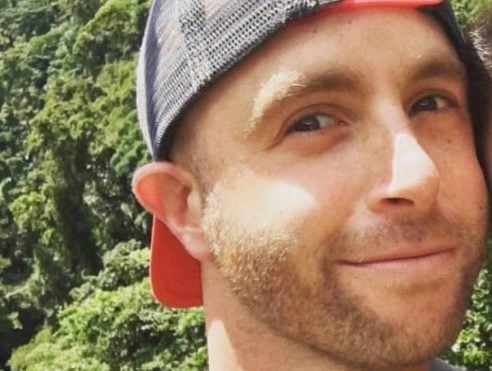
About five years ago, when I was being treated for a rare form of cancer, I got to know a fellow patient named Ben Tolkan. I immediately became fascinated with Ben on account of the cheerful way that he managed the grueling, yearlong course of chemotherapy that we were both undergoing. I made him the subject of my 2016 Washingtonian feature story, “I Was All Set to Become the Most Popular Guy in the Cancer Ward. Then I Met My Nemesis: Ben.” In the article I wrote, “the same chemicals that had turned me into the hospital’s resident grump had made him an oncology-floor legend, the most popular guy in the cancer center, the only patient whose vitality seemed to increase with each round of chemo.” In the face of a bleak prognosis, Ben made the courageous decision to continue living his life. During his five-and-a-half-year battle with cancer, Ben fell in love, got married, traveled to Europe and Central America, and cheered on his beloved University of Wisconsin Badgers at Camp Randall Stadium in Madison, Wisc. In October, he passed away at the age of 37. His friends in the local beer industry, where Ben had spent his career, have since issued a special, limited edition craft beer in his honor. It’s called, “Living the Dream.” –Luke Mullins
Patrick Ellis
born 1943

For more than 40 years, the beloved WHUR radio personality presided over a Sunday morning gospel show, Gospel Spirit. He died in July from coronavirus complications. Ellis started working at the station as a producer not long after it launched in 1971, and he became the production director in 1986. “For four hours every Sunday morning, Patrick Ellis is producer, announcer, receptionist and messenger at WHUR,” the Washington Post wrote in 1983, “carrying on a personal communion over the airwaves with his audience, the largest of any gospel show at that time.”-Rob Brunner
Twins Jazz
opened 1987
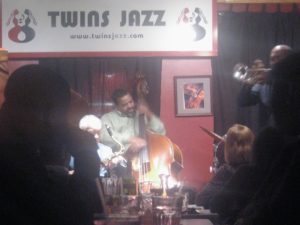
Owned by twin sisters (hence the name) who emigrated from Ethiopia, this jazz establishment operated for 33 years before shuttering this summer due to the pandemic. Originally in Brightwood, it moved to the U Street corridor in 2000, and over the years the small spot hosted both mainstream names (Nancy Wilson, Roy Hargrove) and avant-garde stars (Charles Gayle, Rashied Ali). Its closing leaves a big hole in DC’s jazz scene.-Rob Brunner
Maiesha Rashad
Our First Lady of GoGo, Maiesha Rashad, has joined the angels in heaven to rest easy. #DCproud of the joy she brought to our city while breaking ceilings in the GoGo industry. pic.twitter.com/clqLZAjjix
— Mayor Muriel Bowser (@MayorBowser) June 17, 2020
The singer and leader of the band Maiesha and the Hip Huggers was known as “the First Lady of Go-Go,” a key female voice in a scene that has long been dominated by men. Known for performing go-go versions of classic R&B tunes, she pioneered the popular “grown and sexy” style that attracted older fans. Rashad died in June from stomach cancer.-Rob Brunner
Horace & Dickie’s
opened c 1990
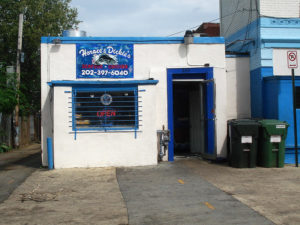
This fried fish carryout in a tiny blue-and-white building near H Street, Northeast, was a long-running institution before succumbing to gentrification earlier this year. Its name and food live on in spinoff spots in Takoma DC and Prince George’s County.-Rob Brunner
Walgreens, Connecticut Ave. and Porter Street, Northwest;
Starbucks, 7th and E Streets, Northwest
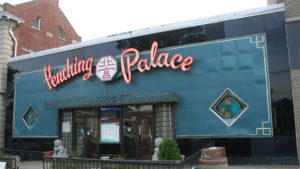
For DC long-timers, these soulless national-chain outposts were potent symbols of the city’s radical transformation. The Walgreens was once home to Cleveland Park Chinese eatery Yenching Palace, which closed in 2007 (and is on Washingtonian’s list of the 50 most influential restaurants). The Starbucks, meanwhile, occupied the site of dc space, one of Washington’s most consequential music venues, which closed in 1991. Still going, for now: the 9:30 Club J. Crew.-Rob Brunner
The Washington “Redskins”
named 1937
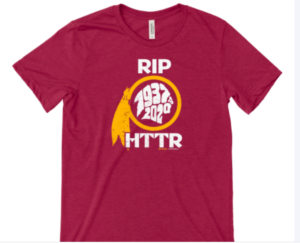
The Washington Football Team, established in Boston in 1932, is still going strong. In fact, it’s going stronger than in previous years, with an on-field performance that has galloped past respectable into possibly-good territory as the 2020 has progressed. Could it be Karmic benefit of ditching its name? In retrospect, it’s amazing the R-word held on as long as it did. Just a few years ago, well after the team’s glory days ended, the nickname tripped easily off the tongues of otherwise polite Washingtonians, and the idea of renaming seemed like a far-fetched, bleeding-heart cause. But the glacial culture of football fandom changed fast. By the time protests over racism rocked the country this summer, we’d already reached a point where parents felt a twinge of embarrassment about sending kids out to play in a shirt that bears the team’s Native American logo. Unfortunately for team owner Dan Snyder, we’d also probably passed the point when the franchise was going to win any points for proactively changing the name. The concession—which came only after corporate partners threatened to cut the team off—appeared like a business move, not an act of decency. So now, as they ponder new names, the team will have to win back its alienated local fans the old fashioned way: By winning games.-Michael Schaffer
Joe Englert
born 1961
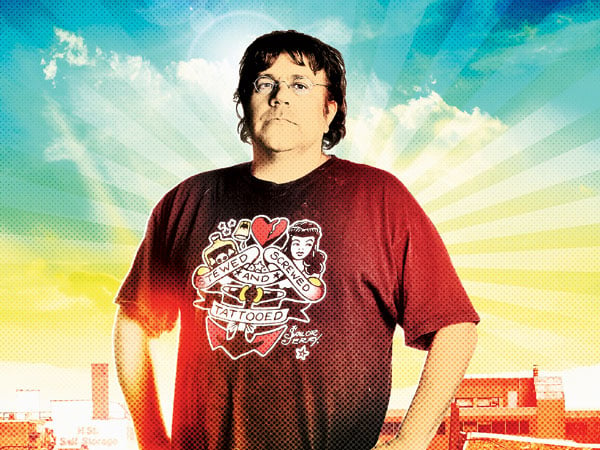
DC entrepreneur Joe Englert, who died in August at age 59, was involved in so many bars and nightlife venues it’s hard to get an accurate count. The Big Hunt, Capitol Lounge, H Street Country Club, DC9, and Rock n’ Roll Hotel are just a few. The laidback and often kooky watering holes and music venues were an antidote to Official Washington. They also helped transform the U Street and H Street corridors. But perhaps Englert’s biggest legacy is building up a generation of bar owners who will continue to shape the city for years to come. –Jessica Sidman
Christine Jahnke
born 1963

Christine Jahnke had a neat niche in Washington’s political ecosystem. She was vocal coach for Democratic women in politics. Her work over the years involved consulting for the likes of Hillary Clinton and Michelle Obama. But in a way, the very fact that her professional niche existed was testimony to something less pleasant: “Our culture’s inbred animosity toward women who seek positions of power,” as Alexis Sobel Fitts put it in a fascinating 2016 Washingtonian profile of Jahnke. Men don’t have to be taught secret ways of butting in so they don’t appear unlikeable. Women seek out coaches to help them do just that. In an interview last year, Jahnke told The New York Times that she was particularly impressed with how then-Senator Kamala Harris handled the task. Alas, she died before getting to watch Harris do the job at the national Vice Presidential debate. –Michael Schaffer
The Post Pub
opened 1976
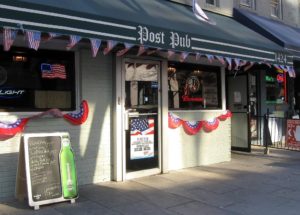
One of the last suitably dingy bars in downtown DC, the Post Pub dates back to 1976—two years after Watergate made a national icon out of the newspaper located across the street. But there’s been a restaurant on the spot more or less since the depression. Like its namesake, most recent incarnation grappled with a lot of changes in recent decades. It survived the Post‘s decision to move its presses out of its 15th Street office building, depriving area watering-holes of early morning business from pressmen in search of a beer or a diplomat burger at quitting time. It survived the Graham family’s sale of the Post‘s to Jeff Bezos, the newsroom’s relocation to a new home several blocks away, and the subsequent demolition of the old Post building on 15th Street. But, alas, it couldn’t survive covid. Citing pandemic-related reversals, the bar closed up shop last summer. –Michael Schaffer

